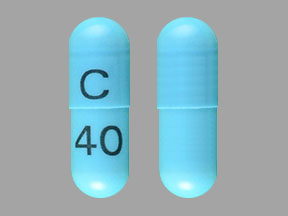
Cleocin Coupons & Savings Card – Discount Prices from $9.65
Brand for: Clindamycin hcl
My prescription
Edit
300MG, Clindamycin Hcl (30 Capsules)
Select pharmacy

CVS
$21.03
COUPON PRICE
Walmart
$9.65
COUPON PRICE
Walgreens
$14.55
COUPON PRICE
Albertsons
$19.37
COUPON PRICECleocin savings card
Show this card to your pharmacist
Walmart
$9.65
BIN
ID
PCN
GRP
019876
LH4FFDBBAA
CHIPPO
LHX
Powered by
Related lincosamide antibiotics prescriptions
More prescriptions for upper respiratory infection
Related lincosamide antibiotics prescriptions
More prescriptions for upper respiratory infection
Price history for Cleocin (brand) & Clindamycin Hcl (generic)
30 Capsules, 300MG
Average retail price for Cleocin
Average retail price for Clindamycin Hcl
Average SaveHealth price for Clindamycin Hcl
Our price history data is based on aggregated prescription data collected from participating pharmacies in America. Our prescription data updates daily to reflect the latest price changes. If you notice a missing data point, it means there wasn't sufficient data available to generate a monetary value for that date.
Over the last 12 months, the average discount price of Cleocin is $22.48 using the SaveHealth savings card. That's an average savings of 77.75% on Cleocin with our discount card.
*Retail prices are based on pharmacy claims data, and may not be accurate when we don't have enough claims.
Cleocin (Clindamycin Hcl) dosage forms
Dosage Quantity Price from Per unit 75MG 14 Capsules $3.13 $0.22 75MG 20 Capsules $6.61 $0.33 75MG 28 Capsules $11.15 $0.40 75MG 30 Capsules $11.41 $0.38 75MG 60 Capsules $15.33 $0.26 150MG 21 Capsules $4.70 $0.22 150MG 28 Capsules $5.43 $0.19 150MG 30 Capsules $5.64 $0.19 150MG 40 Capsules $6.69 $0.17 150MG 63 Capsules $9.10 $0.14
| Dosage | Quantity | Price from | Per unit |
|---|---|---|---|
| 75MG | 14 Capsules | $3.13 | $0.22 |
| 75MG | 20 Capsules | $6.61 | $0.33 |
| 75MG | 28 Capsules | $11.15 | $0.40 |
| 75MG | 30 Capsules | $11.41 | $0.38 |
| 75MG | 60 Capsules | $15.33 | $0.26 |
| 150MG | 21 Capsules | $4.70 | $0.22 |
| 150MG | 28 Capsules | $5.43 | $0.19 |
| 150MG | 30 Capsules | $5.64 | $0.19 |
| 150MG | 40 Capsules | $6.69 | $0.17 |
| 150MG | 63 Capsules | $9.10 | $0.14 |
| 300MG | 30 Capsules | $9.65 | $0.32 |
| 300MG | 14 Capsules | $5.84 | $0.42 |
| 300MG | 21 Capsules | $7.51 | $0.36 |
| 300MG | 28 Capsules | $9.17 | $0.33 |
| 300MG | 40 Capsules | $12.04 | $0.30 |
What STD does Cleocin treat?
Cleocin, which contains the antibiotic clindamycin, is used to treat bacterial infections, including certain sexually transmitted infections (STIs) such as bacterial vaginosis. However, it is not typically used to treat other common STIs like chlamydia, gonorrhea, or syphilis. It is important for individuals to consult with a healthcare provider for appropriate diagnosis and treatment options for STIs.
What is Cleocin antibiotic used to treat?
Cleocin, which contains the active ingredient clindamycin, is used to treat a variety of bacterial infections. It is commonly prescribed for infections of the skin, respiratory tract, and soft tissues, as well as certain types of bone and joint infections. It is also used to treat some dental infections and is effective against certain anaerobic bacteria.
Is Cleocin a strong antibiotic?
Cleocin, which contains the active ingredient clindamycin, is considered a potent antibiotic. It is effective against a variety of bacterial infections, particularly those caused by anaerobic bacteria and certain types of Gram-positive bacteria. It is often used for serious infections when other antibiotics may not be suitable. However, its use should be guided by a healthcare professional to ensure it is appropriate for the specific infection being treated.
What kind of infections does clindamycin treat, including BV?
Clindamycin is an antibiotic that is used to treat a variety of bacterial infections. It is effective against certain types of infections, including skin and soft tissue infections, respiratory tract infections, and infections of the bones and joints. Additionally, clindamycin is commonly used to treat bacterial vaginosis (BV). It works by inhibiting bacterial protein synthesis, thereby stopping the growth of bacteria.
Why do I feel weird after taking clindamycin?
Clindamycin can cause side effects that might make a person feel "weird" or uncomfortable. Common side effects include nausea, vomiting, diarrhea, and abdominal pain. Some individuals may also experience dizziness or a metallic taste in the mouth. If these symptoms are severe or persistent, it is advisable to contact a healthcare provider. Additionally, if there are signs of an allergic reaction, such as rash, itching, or difficulty breathing, immediate medical attention is necessary.
